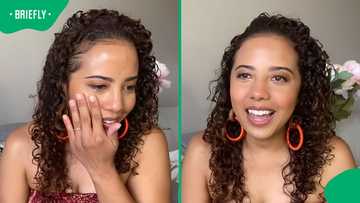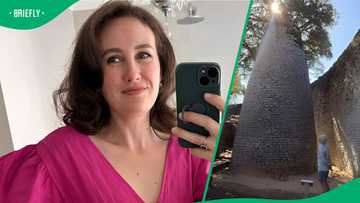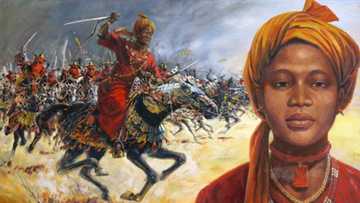Woman Thinks She’s Cape Malay, Ancestry DNA Results Prove Otherwise: “Many Different Backgrounds”
- A South African woman now living in Australia shared that she grew up believing she was Cape Malay
- After taking an ancestral DNA test, she saw that the results differed from what she thought she was
- Many South Africans in the comment section shared their thoughts after seeing the woman's diverse background
Don't miss out! Join Briefly News Sports channel on WhatsApp now!
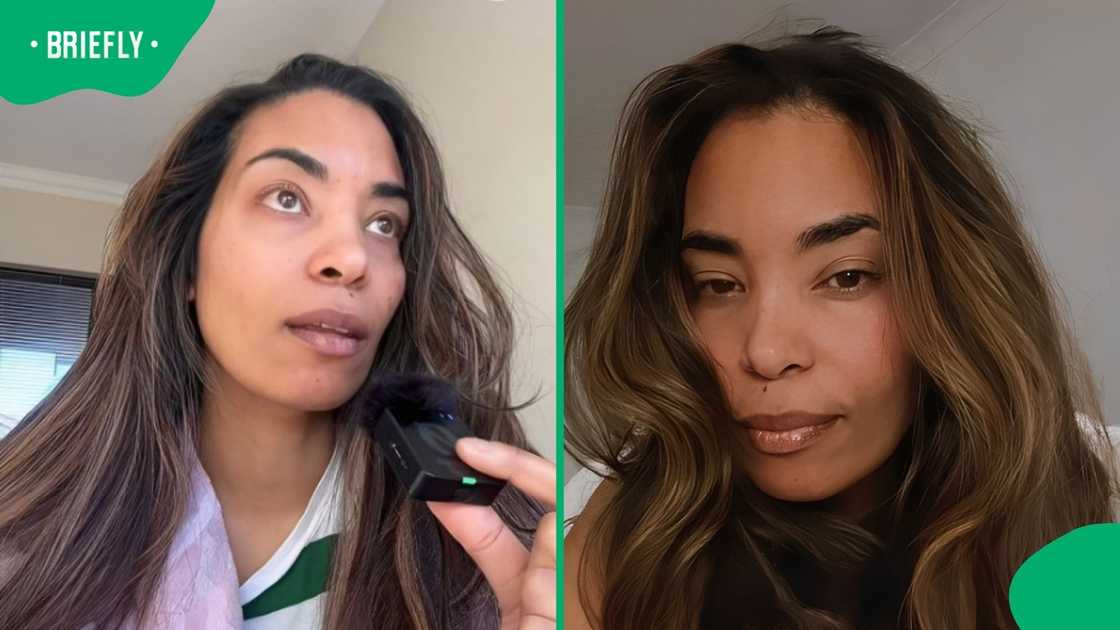
Source: TikTok
A South African Coloured woman living in Australia shared that all her life, she identified as Cape Malay. However, when she tested her DNA to delve into her ancestral background, she was stunned to see the results that didn't match up with the identity she grew up with.
Calling herself The Oracle on her TikTok account, the woman told online users about her family:
"We honoured all of the Cape Malay traditions very strictly, and we were proud of it."
After she was gifted an ancestry DNA test, the South African-born woman thought it would confirm that she was Cape Malay. However, some of the results showed the following:
PAY ATTENTION: Briefly News is now on YouTube! Check out our interviews on Briefly TV Life now!
- The Deccan and the Gulf of Mannar (India and Sri Lanka): 21%
- Southern Bantu Peoples: 12%
- Khoisan, Aka, and Mbuti Peoples: 11%
- Western Bantu Peoples: 8%
- Central and Southern Philippines: 8%
- Germanic Europe: 7%
- France: 6%
- Bengal: 5%
- The Netherlands: 5%
Mistaking being Cape Malay to mean that one should have Malaysian roots, the woman, whose religious background is unknown, said:
"There ain't no Malaysian in there. I'm not Malaysian at all. As you can see, I'm a beautiful symphony of many different cultures and many different backgrounds."
Who are the Cape Malays?
According to the website South Africa, being Cape Malay is a culture and people who don't exist outside of South Africa. These enslaved people originally came from Indonesia, among other Southeast Asian countries, and were transported by the Dutch East India Company. They brought their religion, Islam, with them and became the first practising Muslims in Cape Town.
Islam spread among the enslaved community after the Dutch brought more people from different parts of the world to the Cape during the 17th and 18th centuries.
On the website South African History Online, it states that enslaved Muslims were captured and sent into exile from the Madagascan, Indian, Sri Lankan, and Indonesian colonies. Other immigrants came from the Philippines, Japan, Macau, Malacca, the West Indies, Brazil, and possibly New Guinea. African immigrants mainly came from the East and West.
South African History Online then shared:
"Many of these people were skilled artisans, such as silversmiths, milliners, cobblers, singers, masons, and tailors. This group came to be known collectively as the 'Cape Malay,' despite their diverse origins as far afield as East Africa and Malaysia."
Today, people who identify as Cape Malay are descendants of the above enslaved people and belong to a Muslim ethnic and cultural group predominantly found in the Western Cape, specifically in Bo-Kaap.
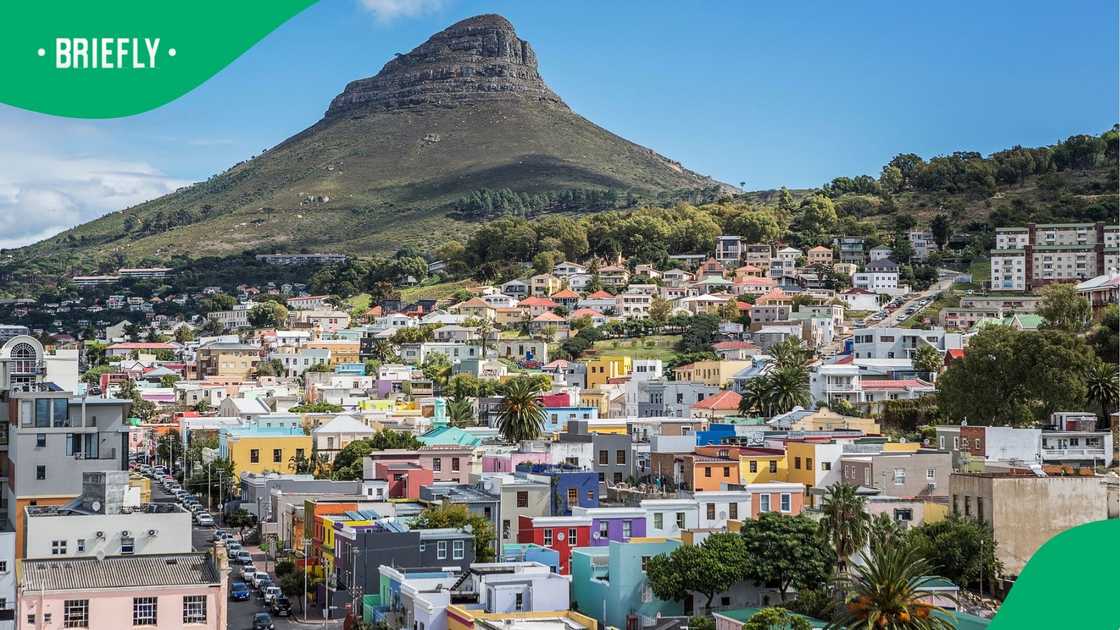
Source: Getty Images
South Africans react to ancestral DNA results
Hundreds of local members of the online community shared what they thought being Cape Malay meant, while others revealed their ancestral history to the rest of the internet.
@southafricannatio shared under the post:
"This is so interesting because my father got 25% Southeast Asian, which was mostly Indonesian and Malay. It’s so interesting how it can vary."
@ashleymeyer00 stated in the comments:
"I remember another Cape Malay woman took an ancestry DNA test, and most of her results showed a large percentage of Indian ancestry, but no Indonesian ancestry. She was also shocked because she had always thought her ancestors were mainly from Indonesia and/or Malaysia."
@nikafrica, who visited the Asian country, revealed:
"I travelled to Malaysia and the taxi driver explained that Malaysians have Indian ancestry, so maybe 21% makes sense."
A confused @vis_1ofakind_ remarked:
"I don't even know why people started calling themselves Cape Malay."
@jeremy.van.briesi said with a laugh:
"Love this. This is what I am, too. Technicolour."
@ziosrevil2 told people on the internet:
"My sister brought two different types of DNA ancestry kits from the UK to Cape Town for our 80-year-old mom. Surprise, surprise, each one was vastly different to the other. All I can say is that we had a good laugh at the results, and we genuinely thought it was a money-making scam."
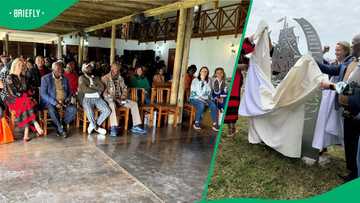
Read also
“South Africa and Ukraine share a history”: Luxe Eastern Cape hotel honours connection with new sign
Take a look at the TikTok video below:
Ancestry DNA tests are generally accurate for identifying close family relationships and estimating ethnic origins, but their accuracy varies depending on the database size and comparison methods.
According to Medicine Plus, these tests work by analysing saliva or cheek swab samples, extracting DNA, and scanning for genetic markers called SNPs (single-nucleotide polymorphisms). Results are then compared to reference populations to estimate ancestry and possible matches with relatives.
Accuracy is higher for close relatives (like parents or siblings) but less exact for distant ancestry. Limitations include database diversity and differences in interpretation between companies conducting the tests.
3 Other stories about ancestry DNA results
- In another article, Briefly News reported that a coloured woman from the Cape Flats cried when she saw her ancestral DNA results. Many people misconstrued her tears.
- Another woman from Cape Town shared her diverse ethnic background. The results intrigued many South African social media users, who also shared a breakdown of their ancestry.
- After a South African woman shared her ancestral DNA results, she left many people divided. Some celebrated her rich heritage, while others questioned how an individual could have such DNA running through their veins.
Updated by Hilary Sekgota, Human Interest HOD at Briefly News.
Proofreading by Roxanne Dos Ramos, copy editor at Briefly.co.za.
Source: Briefly News


